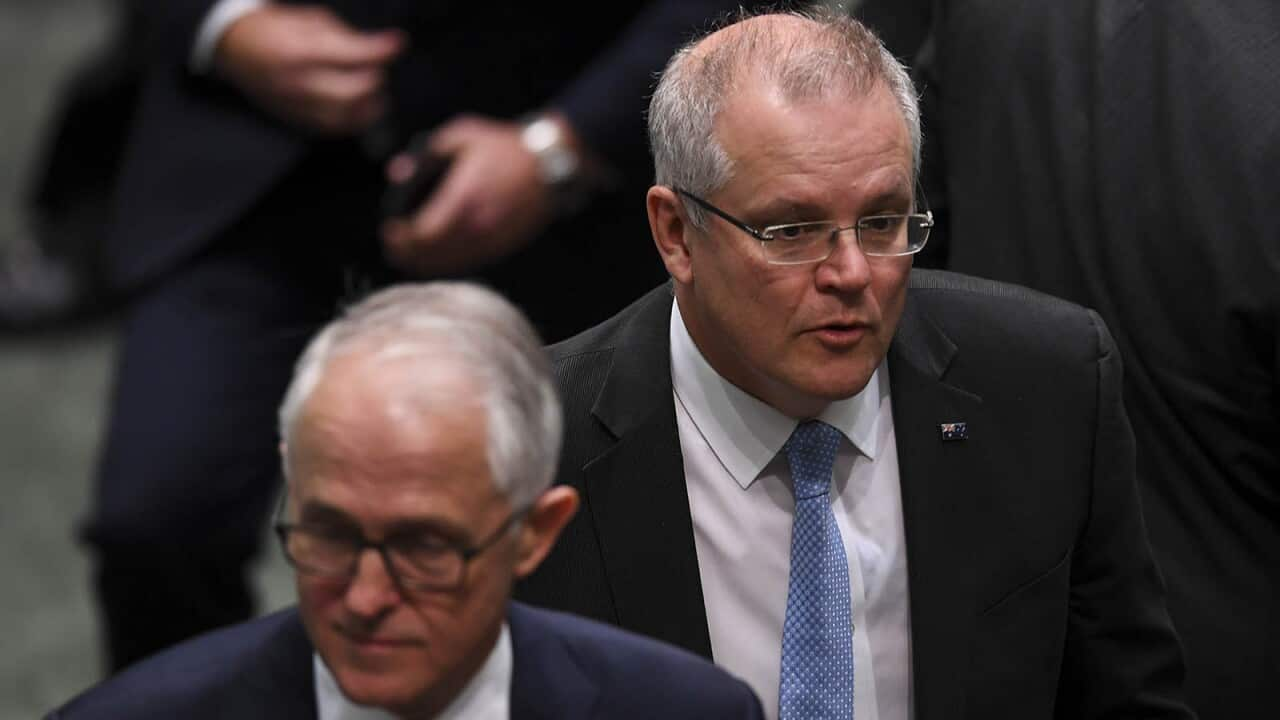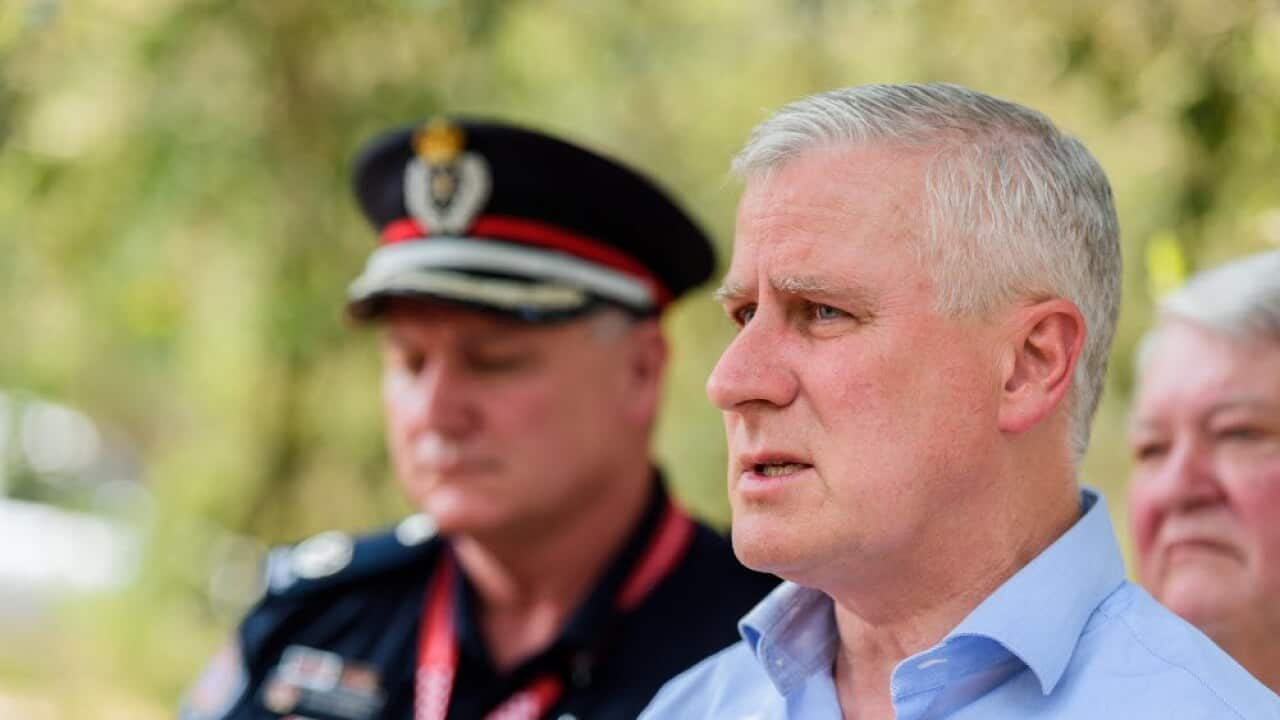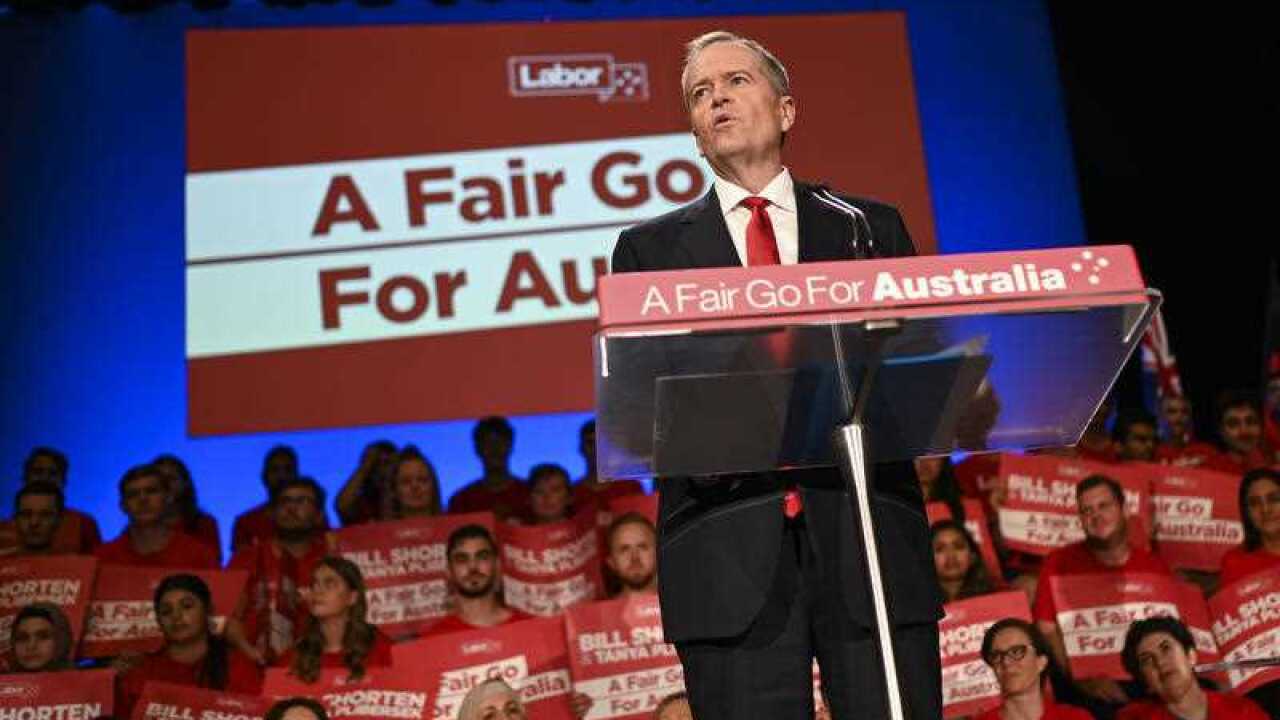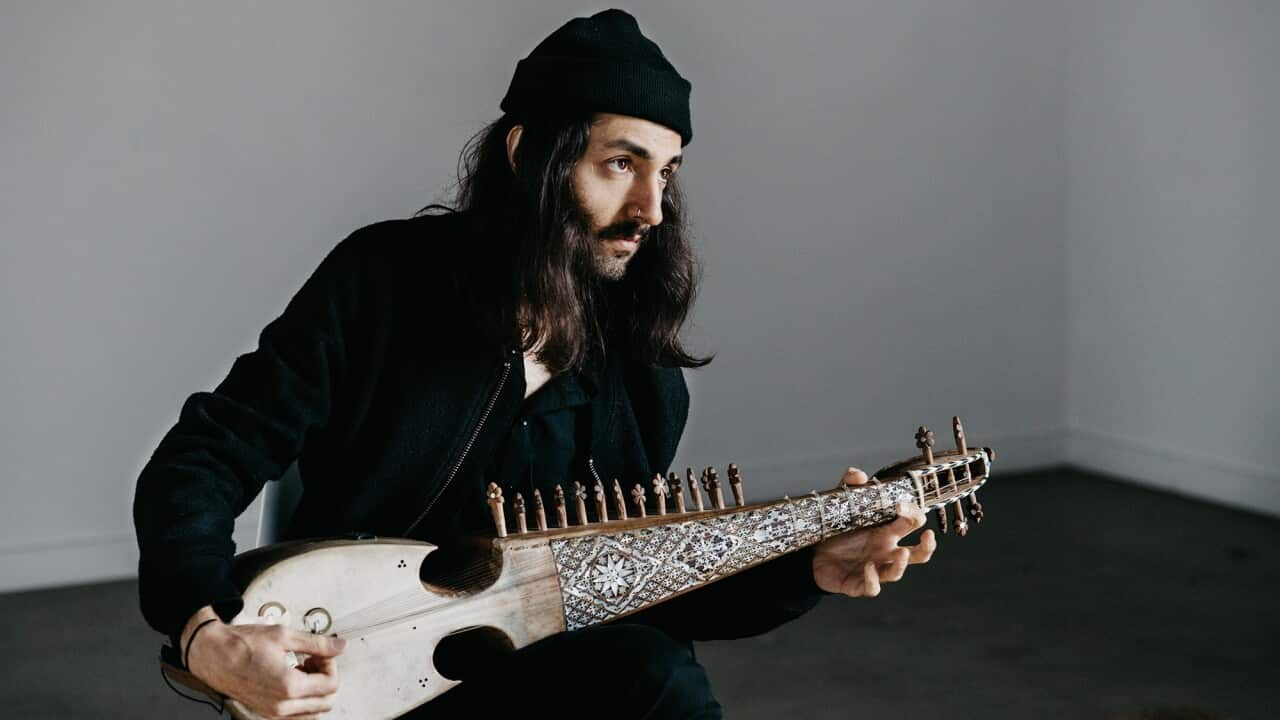The Nationals take pride in representing the interests of people in regional and rural Australia and have done so for almost 100 years.
Formed in 1920, the party's gone through a series of name changes and for many years called itself the National Party.
In 2006, it re-branded under the name the Nationals.
The country party

صدراعظم اسکات موریسن و معاونش مایکل مککورمک و نامزد حزب ملی برای کرسی برادن در مزرعهای در تاسمانیا Source: AAP
They say they are dedicated to building stronger regional economies and secure communities to deliver opportunity and prosperity for all regional Australians.
Together with the Liberal party, the Nationals form what's known as the Coalition.
It's been an enduring relationship although the competing priorities between the two parties can create tension.
The Liberal party has always supported free markets while the Nationals have traditionally sought to protect the economic interests of those in regional and rural Australia.
Drought and water
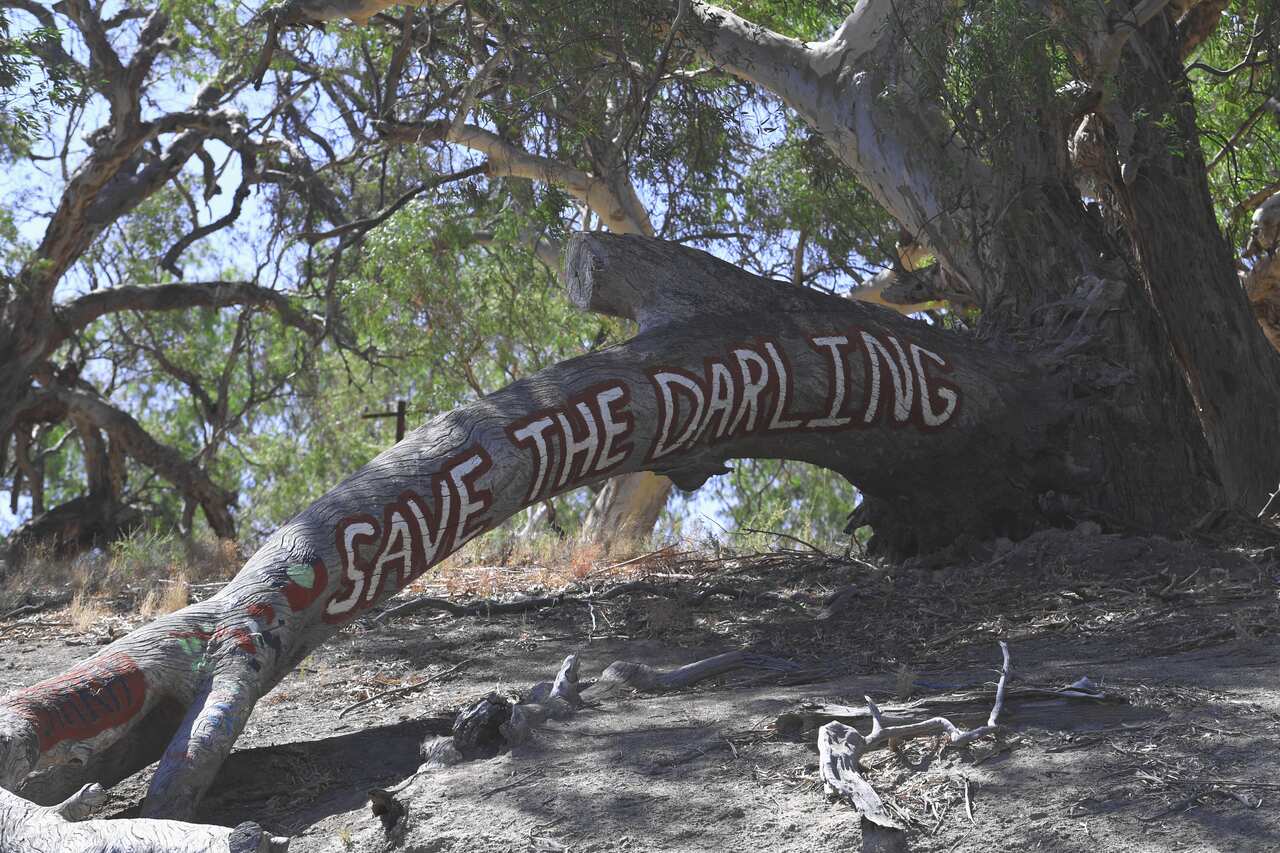
کاهش سطح آب دریای دارلینگ Source: AAP
"The National Party has not been managing the issue at all well while in government and when they've had the capacity to perhaps also pursue a better management of the whole Riverina system," he told SBS News.
"But it's not just about the rivers, of course, this goes back over the last 30 or 40 years for people in rural areas saying 'well where's my bank, where's my railway, you know where's my post office. Where're all these services that I should be getting?'"
The Barnaby factor

Barnaby Joyce (right) and Michael McCormack Source: AAP
Mr Joyce has repeatedly called himself the "elected deputy prime minister of Australia" and has said while he's not pushing for a change of leadership, he would nominate for the position if there was an opening.
Barnaby Joyce stepped down last year after the revelations his marriage had ended and he was in a relationship with a former staffer - a point Michael McCormack emphasised when asked about Mr Joyce's intervention in March.
"Well he was the elected deputy prime minister and then he resigned," Mr McCormack said.
"Last February, he resigned. I'm now the deputy prime minister and I'm working very hard with my colleagues to make sure we build a better regional and rural Australia and I'll continue to do that."
Dr Stewart Jackson from the University of Sydney says unlike Barnaby Joyce and previous leaders of the Nationals, Michael McCormack struggles to make an impact in his media performances.
"McCormack doesn't really have those particular capacities to cut through and get onto the media and without that he then becomes somewhat more invisible.
"Now that's what most political leaders as an issue face but his is a relatively small, 25 per cent of the population or less depending on the state, constituency that needs to make its voice much more broadly heard otherwise it becomes discounted and certainly if not forgotten then taken for granted."
Disillusioned voters

نشست مردم محل در تامورت دربارۀ خشکسالی Source: AAP
"They won't necessarily be successful but it should be taken as a signal moment for the National Party when they see these candidates and particularly when they do well to say, 'well perhaps we have to revisit what we're doing and why we exist as a party and how we prosecute our policies?'
"Not to knee-jerk and say, as some have pointed to Barnaby Joyce, 'you know he should be leader again', well that will be a two-edged sword because he was one of the reasons why they didn't deliver, so perhaps he will be, yes he's a rambunctious individual, a great retail politician but he's also not been the deliverer that perhaps all of them would have hoped for."
Read more:

What does the Liberal party stand for?

